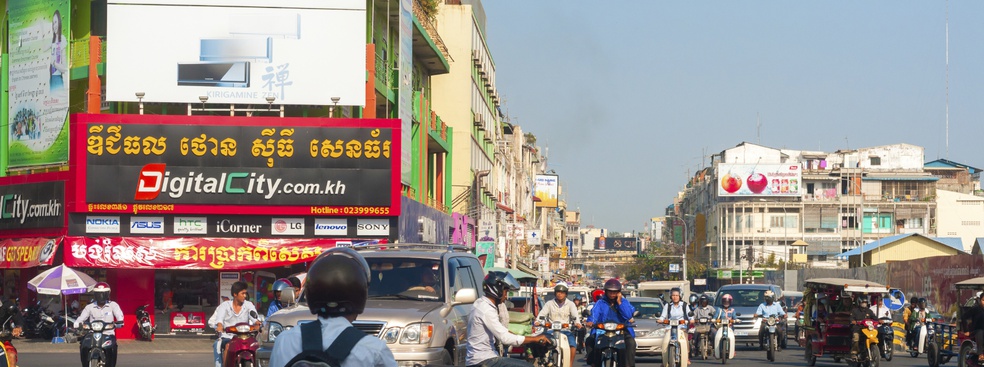Every year, Transparency International measures the perceived levels of public sector corruption worldwide based on independent surveys and opinions of experts from around the world. Their latest Corruption Percentage Index was published last month, and reveals a disturbing picture: today, more than two-thirds of countries worldwide score below a 50 on a scale from 0 (highest level of corruption) to 100 (least corruption). The situation appears even more alarming when we take into consideration all the indirect consequences of corruption: wealth and power for the very few, poverty for most.
But one of the correlations that I find most interesting is the link between corruption and education – or lack thereof. Indeed, a high level of corruption not only hinders economic growth – by discouraging investments and entrepreneurship and promoting income inequality – it also directly impacts governance, compounding educational deficits within the poorest segment of the population.
The poorest economies tend to have ineffective taxation systems, so they just don’t have the funds for public education infrastructures of services like even a basic education. In the most corrupt countries, the public sector – which should be responsible for regulating public education and ensuring the wellbeing of society – becomes the root cause for a self-perpetuating cycle of poverty and ignorance.
Education as a Solution to Corruption
While one could argue that the private sector has a moral obligation to take the lead in the fight against this corruption, businesses are also often caught in the clutches of the public sector’s corruptive structures and practices. These are powerful forces that keep the status quo in place. However, education might be the strongest tool for fighting back!
Take the example of Cambodia, a country which ranks 136th out of 187 in UNDP’s education index, and 156th out of 175 in the Corruption Perceptions Index. Here, the French NGO Pour un Sourir d’enfant (PSE - for the smile of a child) has used education as a way out of this trap of corruption and poverty. In 1995, PSE was established by a French couple in Phnom Penh to provide food, shelter, medical care, and general education and vocational training to destitute, maltreated, abused and uneducated children in Phnom Penh, Sihanoukville and Siem Reap. Today, PSE is providing help to more than 6,500 children, supporting around 3,000 children in public schools, 1,500 in remedial education programs, and 1,500 in vocational training programs. Around 500 children benefit from its specific educational programs: classes for children with disabilities, day-care centers and infant welfare.
Encouraged by the success of its vocational training programs, PSE created the PSE School of Business (BS) in 2000. While originally starting out as an accounting and administrative oriented school, it has since then evolved in a fully-fledged business school covering all fundamental business and management disciplines. The employment results, career evolution and salaries of PSE’s BS graduates have been very compatible by Cambodian standards. The high demand by local and international companies in Cambodia for PSE’s BS graduates has pushed PSE to increase the size of its business school - enrolling almost 400 students in the 2014-2015 academic year.
Having visited and taught twice at PSE (a partner of ESSEC Business School), I can attest to the dedication of many PSE professors. They are becoming the vectors for real change in the country, by giving something back to the community and ensuring that kids of poor socio economic backgrounds get an opportunity to create a better life for themselves and their families. For many of the professors at PSE’s business school, teaching and mentoring responsibilities for students go beyond the classroom. This means long hours at the school and on the campus for relatively little money. Many of the professors have given up well-paid jobs, and others have denied well paid job opportunities in the private sector.
Educated and well trained professionals in marketing, finance, accounting, operations, and IT are still rare in Cambodia, as a result of the Khmer Rouge’s attempts to eradicate intellectuals, academics and other educated citizen in the 1970s. Therefore, PSE professors are in high demand. Cambodia is quickly becoming an excellent example of how education can change the very fabric of a society, bring people out of poverty and create a stronger working class capable of fighting back against corruption.
Ultimately, education offers a way out of poverty by challenging the corruptive structures and systems within the public sector. While transnational organizations and the private sector still struggle to deal with corruption successfully, business schools – and other institutions – can play a much more important role in addressing corruption: from starting to put greater emphasis on teaching topics such as business ethics and corruption, to actively engaging and supporting NGOs within the educational sector of developing countries with high rates of corruption.









